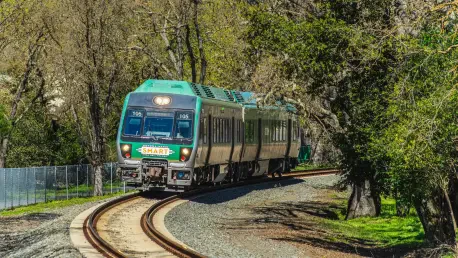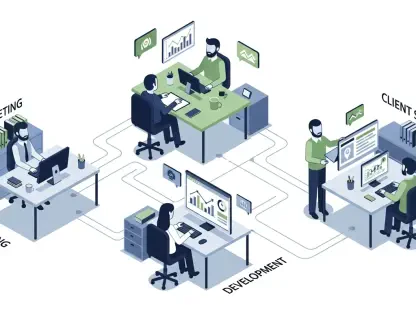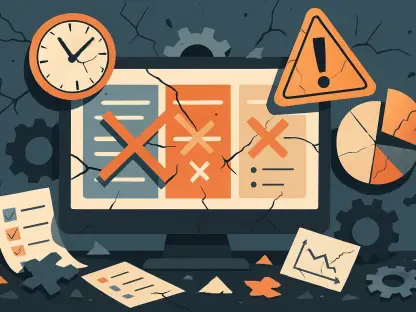The Future of Transportation Sustainability
Imagine a future where railways lead the charge in sustainable transportation. As industries worldwide confront environmental challenges, GB Railfreight’s unveiling of the Class 99 locomotives marks a pivotal moment in the journey toward greener transport solutions. These are no ordinary engines; they represent a leap forward in reducing carbon footprints and promoting eco-friendly initiatives across Britain. What sets them apart, and what does their debut signify for the UK’s rail network and broader environmental landscape?
Vital Role of Rail Freight
Rail freight has long been recognized as an integral part of Britain’s logistical fabric, offering an efficient alternative to road transportation. It plays a crucial role in minimizing emissions, aligning with the UK’s ambitious net-zero commitments to fight climate change. As global attention turns to sustainable practices, rail freight positions itself as an answer to curbing pollution and meeting eco-friendly benchmarks. Now, as climate change becomes increasingly pressing, the UK’s pursuit of cleaner logistics sets a benchmark for industries aiming to strike a balance between economic growth and environmental stewardship.
Hybrid Locomotives and Their Impacts
The innovative Class 99 locomotives bring a formidable mix of hybrid capabilities to Britain’s rail landscape. Powered by both electricity and renewable fuels, their environmental benefits include a remarkable reduction in carbon emissions, a key factor in GBRf’s substantial £150 million investment. These locomotives will transport vital goods across the UK, supporting projects like infrastructure development and retail stocking, reshaping how logistics companies manage their supply chains. By doing so, these engines promise not only to enhance railway resilience but also to offer concrete contributions toward eco-friendly objectives nationwide. The investment in these hybrid marvels signals a significant stride in modernizing rail operations for a sustainable future.
Industry Leaders Speak on Rail Freight Evolution
Industry voices echo the excitement surrounding GBRf’s latest venture. Lord Hendy of Richmond Hill sees this private-sector investment as a crucial vote of confidence in the potential of rail freight to drive economic and eco-conscious development. Ben Fletcher from Make UK emphasizes how the Class 99 locomotives point toward a future where logistics seamlessly mesh efficiency with sustainability, leading to cleaner and faster operations. At the launch event, stakeholders shared anecdotes reflecting the profound transformation that these locomotives represent, illustrating how they’re set to power tomorrow’s rail operations with timely and reliable deliveries.
Practical Effects Across Business and Regions
Businesses eyeing alignment with the Class 99 locomotives can capitalize on renewed logistical efficiency. Steps such as investing in compatible technology and adapting operations to reflect new railway capabilities can lead to substantial improvements. Regionally, these locomotives can spur economic prosperity while easing infrastructure burdens, offering tangible benefits beyond their environmental promises. Strategies centered around zero emissions can guide companies and communities alike, fostering an ecosystem conducive to sustainable advancements and innovative growth. Their contribution to the annual £2.5 billion enhancement of the UK economy bolsters the promise of substantial regional development.
Exploring Sustainable Rail Solutions
The Class 99 locomotives mark a transformative phase in rail freight operations, serving as a testament to the enduring pursuit of sustainable infrastructure. As businesses plan their next steps, embracing hybrid and eco-friendly solutions will be paramount. Prioritizing sustainability over conventional methods paves the way for long-term benefits that resonate beyond environmental gains. The unveiling generated a ripple effect that inspired other sectors toward greener practices, capturing the essence of innovation in tackling environmental challenges while enhancing economic growth. The legacy left behind is seen as a future marked by resilience and commitment to cleaner transport.









